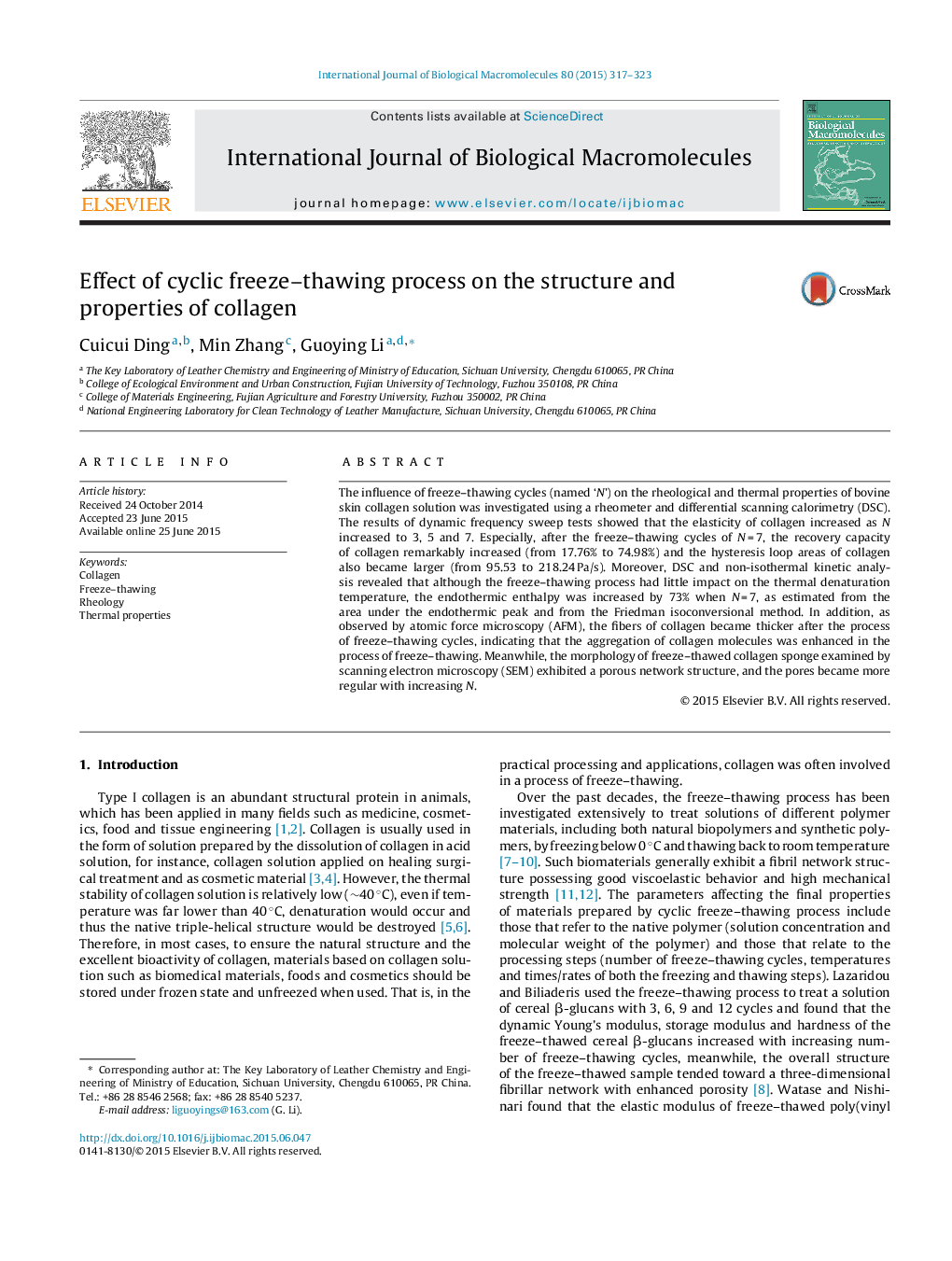| Article ID | Journal | Published Year | Pages | File Type |
|---|---|---|---|---|
| 8330611 | International Journal of Biological Macromolecules | 2015 | 7 Pages |
Abstract
The influence of freeze-thawing cycles (named 'N') on the rheological and thermal properties of bovine skin collagen solution was investigated using a rheometer and differential scanning calorimetry (DSC). The results of dynamic frequency sweep tests showed that the elasticity of collagen increased as N increased to 3, 5 and 7. Especially, after the freeze-thawing cycles of NÂ =Â 7, the recovery capacity of collagen remarkably increased (from 17.76% to 74.98%) and the hysteresis loop areas of collagen also became larger (from 95.53 to 218.24Â Pa/s). Moreover, DSC and non-isothermal kinetic analysis revealed that although the freeze-thawing process had little impact on the thermal denaturation temperature, the endothermic enthalpy was increased by 73% when NÂ =Â 7, as estimated from the area under the endothermic peak and from the Friedman isoconversional method. In addition, as observed by atomic force microscopy (AFM), the fibers of collagen became thicker after the process of freeze-thawing cycles, indicating that the aggregation of collagen molecules was enhanced in the process of freeze-thawing. Meanwhile, the morphology of freeze-thawed collagen sponge examined by scanning electron microscopy (SEM) exhibited a porous network structure, and the pores became more regular with increasing N.
Related Topics
Life Sciences
Biochemistry, Genetics and Molecular Biology
Biochemistry
Authors
Cuicui Ding, Min Zhang, Guoying Li,
